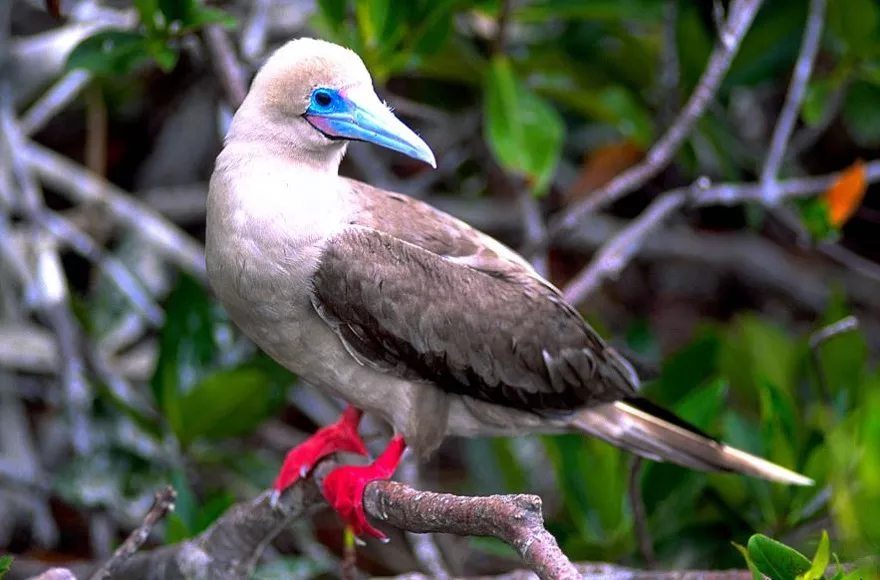A rare species of tropical bird, which has only been recorded once in the UK, has been spotted near the Isles of Scilly.
The red-footed booby is a seabird native to the Galápagos Islands, more than 6,000 miles away.
A tour boat crew spotted the rare species perched on Bishop Rock lighthouse, four miles west of Scilly.
The British Trust for Ornithology (BTO), which studies birds in the British Isles, said the warm weather could explain its presence.
The first UK sighting of the booby was in 2016, when it was spotted in an “exhausted state” on the beach at St Leonards, Sussex.
Joe Pender, skipper of the Scilly Pelagics tour boat, first saw the bird on 7 August and said “to everyone’s amazement, there it was”.
He said he returned for more trips on Monday and the seabird, which is related to the gannet, was still there.
“I think it’s a long way from home, but it seems really happy up there,” Mr Pender explained.
“There was obviously a lot of excitement from the people on board. There were a few rare seabirds they were expecting to see, but this certainly wasn’t one of them”.
The red-footed booby is a relative of the gannet, but this species breeds on tropical islands such as the Galapagos, the BTO said.
According to National Geographic, red-footed boobies do not usually migrate, but live year-round in tropical or subtropical areas.
They feed at sea, nest on the ground and perch in coastal trees and bushes.
They are the smallest of more than six species of boobies.
They come in a variety of colour morphs, but all have red feet, hence their name.


 Facebook
Facebook  Instagram
Instagram  Youtube
Youtube 